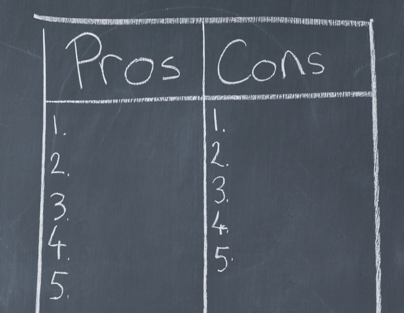The original intent for the Request for Proposal (RFP) process made sense. As part of the procurement process for state agencies, schools and non-profits, RFPs provided a clear way to find out what your organization needed, what was available from vendors and who could provide the best service at the best price.
 As the RFP process became more established, it got to be cumbersome. In response to this, an organization known as Sourcewell set out to simplify the process and eliminate the need for RFPs. With Sourcewell, cooperative contracts do most of the upfront work agencies and schools need before they purchase goods and services. When you look at a product or service on the Sourcewell list, you'll know you're getting a good price upfront and be assured the quality has already been vetted by a process that meets your organization’s policy requirements.
As the RFP process became more established, it got to be cumbersome. In response to this, an organization known as Sourcewell set out to simplify the process and eliminate the need for RFPs. With Sourcewell, cooperative contracts do most of the upfront work agencies and schools need before they purchase goods and services. When you look at a product or service on the Sourcewell list, you'll know you're getting a good price upfront and be assured the quality has already been vetted by a process that meets your organization’s policy requirements.
Not convinced that cooperative contracts are right for you? Below I've outlined some pros and cons of the RFP process and working with Sourcewell. Let’s take a look at both processes to see how they stack up...
The RFP Process
On the pro side, the RFP process makes sure:
- You gather all the relevant information about your organization’s needs
- You involve a number of people in your organization
- You have a paper trail of the decisions made as the purchasing process proceeds
- You meet the legal/policy requirements of your agency
- You notify multiple vendors about your needs, which may create a competitive environment to drive down prices
On the negative side, the RFP process is:
- Slow - often taking from three to nine months to complete
- A lot of work - usually involving several busy individuals
- Unreliable - because the needs outlined in the final document are not always addressed by the vendors who answer
- Budget-straining - especially when vendors ignore the limits and pitch their own solutions
- Compromising - because you end up making difficult choices when you compare what you need to what you got from the vendors
The reality of the RFP process is that it is usually less satisfactory than the ideal that established it. It can slow down your timeline and require you make compromises you didn't originally intend on.
Sourcewell Cooperative Contracts
On the pro side, the Sourcewell contract process is:
- Faster - reducing the RFP process from nine months to as little as six weeks
- Less work - all the preliminary research and due diligence is done for you. You can send your RFP committee back to their desks to get work done.
- Respectful of your budget - when you work with Sourcewell, there is no question about the price you will pay for the goods or service. That’s already been worked out. All you need to do is choose the product and buy it with the budget you’ve got. No guessing, no variable pricing and no decision anxiety.
- Better results - you know what you are getting and you know the price, you won’t feel like you are compromising the needs of your organization just so you can jump through the RFP hoops.
- Simple - a cooperative contract through Sourcewell often means you get to skip both the RFP process and the competitive solicitation process.
On the negative side, the Sourcewell process will eliminate:
- Additional meetings - no more RFP meetings with your coworkers
That’s it. Fewer meetings and stacks of paperwork are needed because the RFP work has already been done for you.
The Clear Choice: Sourcewell
In its time, the RFP process was a workable solution, but it’s no longer a good tool for an agency, school or non-profit that needs to move quickly toward a more productive model. If you're looking for a better solution to the RFP process, talk to a Marco representative about Sourcewell's pre-screened products and services.
